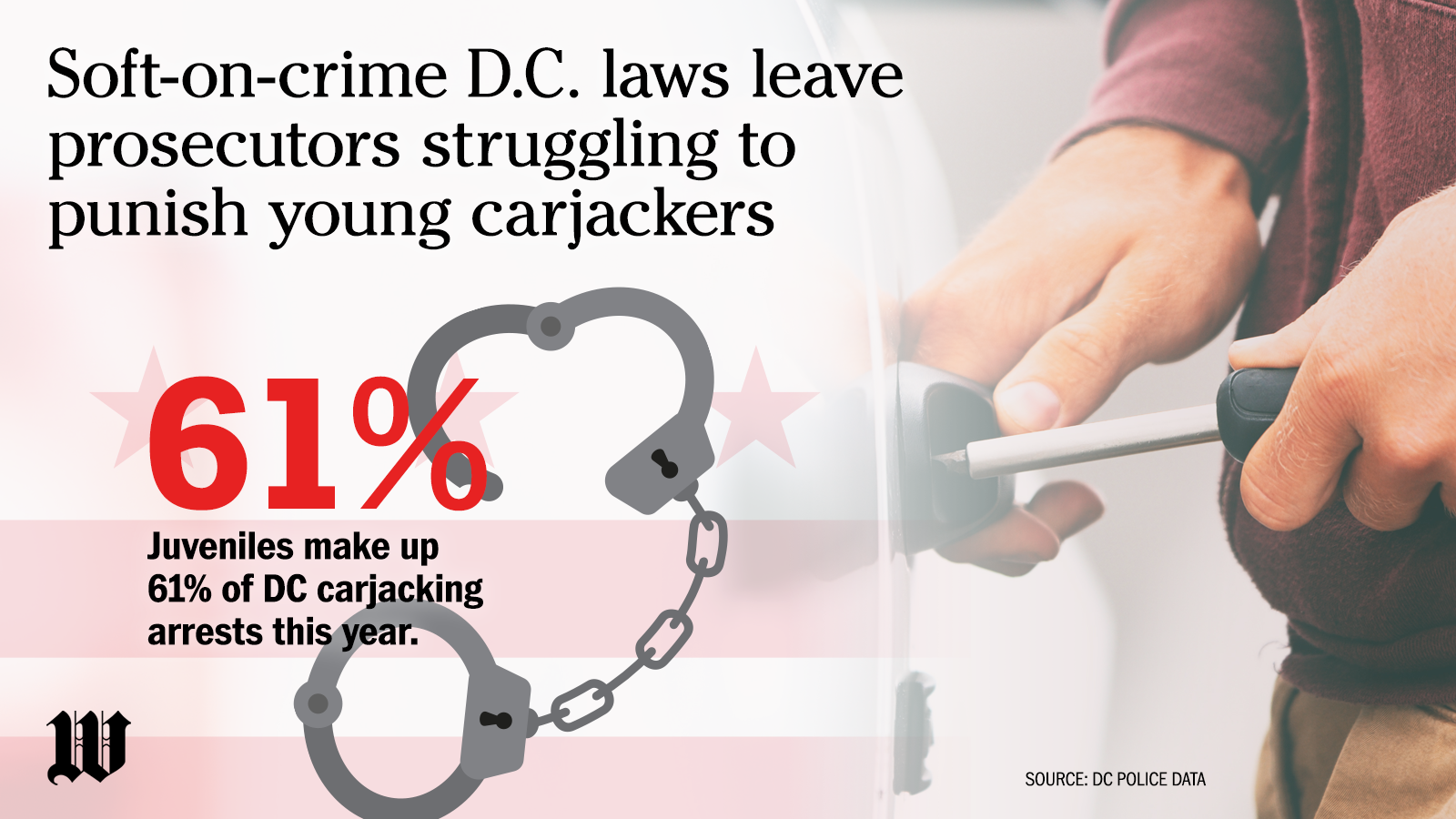Prosecutors on Monday blamed soft-on-crime laws passed by District leaders for making it more difficult to punish violent young carjackers — but new police initiatives have helped bring car thefts down from the record highs of last year anyway.
U.S. Attorney Matthew Graves, the federal prosecutor whose office handles most major crimes in the city, credited dedicated investigators from the Metropolitan Police Department and forensic assistance from the FBI and ATF for helping to bring the carjacking wave of 2023 under control.
But the city’s top prosecutor also said the crime surge seen in 2023 — in which the city saw the most killings since the late 1990s and record-high carjackings — underscores what he sees as flaws in the criminal justice legislation approved by the D.C. Council in recent years.
He said it’s most evident in laws granting leniency to defendants under 25 years old, who make up the bulk of the District’s carjacking suspects.
“These are all challenges that get exposed when you get hit with a crime wave,” Mr. Graves said at a media event Monday. “You don’t feel them at first — you don’t see them when they’re immediately passed — but when a crisis comes, that’s when you see the shortcomings of your foundation.”
He referred specifically to 2018 amendments made to D.C.’s Youth Rehabilitation Act.
The amended law allows judges to hand down lighter sentences to people who were under 25 when the crime was committed. The original language of the 1985 law allowed leniency only for convicts 21 and under.
The U.S. attorney further criticized some aspects of the Second Look Act for creating an imbalance in judicial consequences.
The 2021 law lets convicted murderers and rapists petition for a reduced sentence after 15 years behind bars as long as they were under 25 when the crime happened.
“It shouldn’t just come down to whether you’ve done reasonably well in a confined institution, which has no bearing on how you’re going to be when you’re back in society,” Mr. Graves said. “It also doesn’t take into account the impact on the victims in many instances.”
Metropolitan Police documented 258 violent car thefts in the city as of July — a 46% drop from where the District was at this point in 2023.
This June only saw 31 carjackings, a 78% year-over-year drop from the 140 reported last June which represented the peak of the District’s carjacking crisis.
Police data also shows carjacking arrests are up 23% through Monday, with 46 juveniles (up 15% year-over-year) and 29 adults (up 38%) being handcuffed in 2024.
New legislation that makes it easier to prosecute carjackings has produced unclear results so far.
Mr. Graves could not recall his office charging a case that takes advantage of the broadened definition of carjacking enshrined by the Secure DC Act passed this spring.
The new language allows prosecutors to charge for carjacking if the victim is mugged for their car keys while standing near their vehicle, such as by a gas pump or if they are walking from their car to their home.
That said, Mr. Graves did note those suspects are usually charged with a crime, it’s just not as severe as a carjacking offense would be.
But even as the District navigates how to punish violent car thieves, the attorney’s office has had success charging some young suspects as adults over carjackings.
Even with more arrests and fewer carjackings, the District is still on pace to finish 2024 with around the same number of carjackings it saw in 2022 — which ended the year with a then-record of 474 at the time.

Mr. Graves said the downward trend in carjackings is reliant on all levels of government “continuing to do all the right things in our lane.”
The criminal trend isn’t just confined to the District. Fairfax County police in the Virginia suburbs said they arrested 38-year-old Ranzo Johnson on Saturday after he carjacked one victim and tried to do the same to two others in a 90-minute duration.
• Matt Delaney can be reached at mdelaney@washingtontimes.com.




Please read our comment policy before commenting.